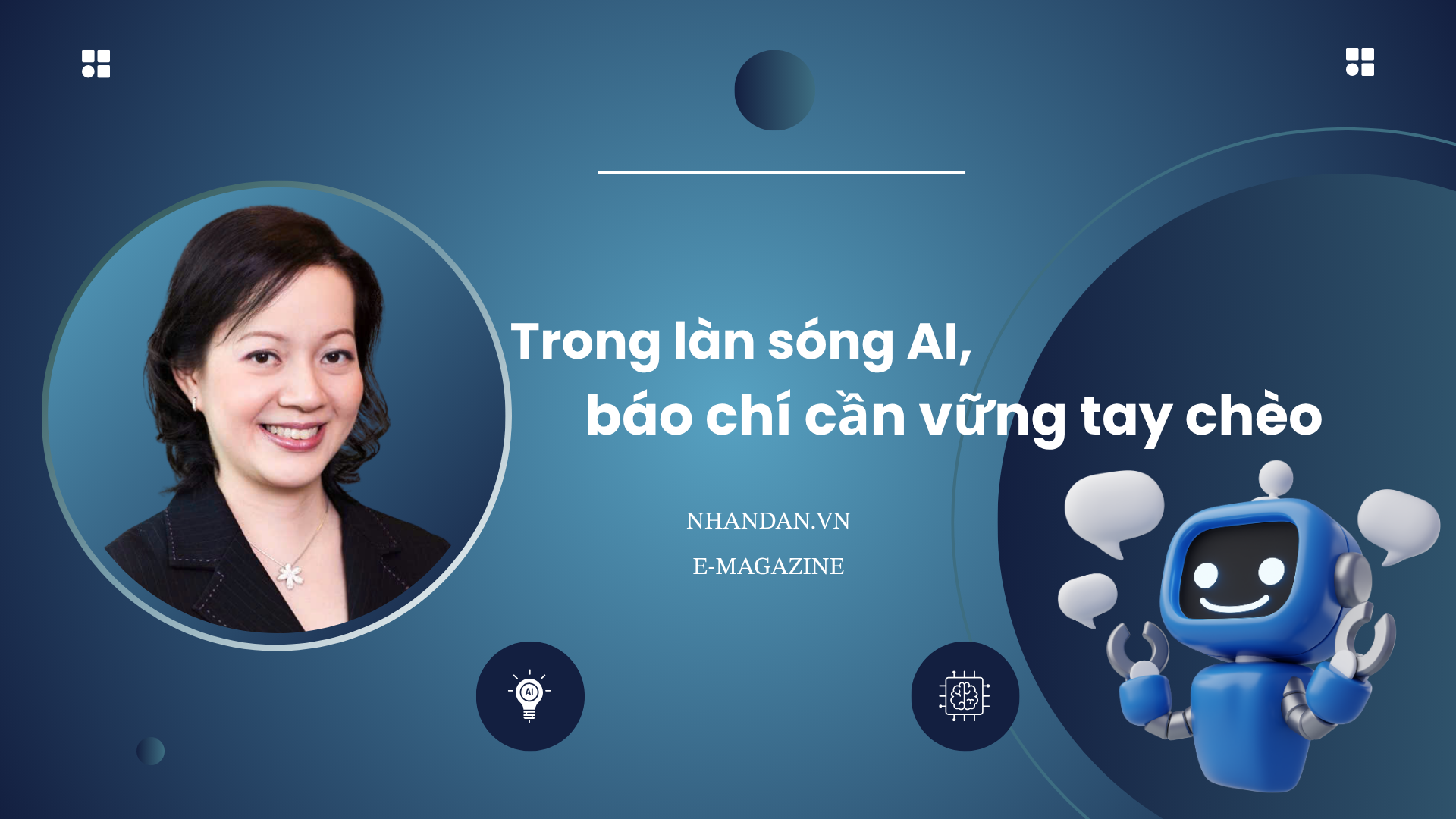
WAN-IFRA ( World Association of Newspapers and News Publishers), with more than 75 years of experience accompanying the global journalism industry, is playing an important role in accompanying newsrooms in finding answers to questions related to that AI "wave".
Nhan Dan Newspaper reporter had an interview with Ms. Jen Teo, Deputy Director of Training and Special Projects of WAN-IFRA in Singapore, to explore the trends shaping the future of the journalism industry, as well as assess the adaptation of Vietnamese journalism in this transitional flow.
From digital transformation to transformation with AI
Reporter: WAN-IFRA has been present in Asia for more than a decade. What do you think are the most notable changes in the region’s press over the past time?
Ms. Jen Teo: When we started operating in Asia, most newsrooms were still in the early stages of digital transformation. Many still operated on the traditional print model. Over the past 10 years, we have focused on digital transformation. And when the Covid-19 pandemic broke out, many newsrooms, especially in the Asia -Pacific region, accelerated the process of building a paywall system.
Previously, when we covered this topic at the Publish Asia event Nordic, European and American markets were pioneers in adopting the subscription model 15-20 years ago. However, in Asia, it was only with the pandemic that newsrooms accelerated the process, as the demand for news from reliable sources increased due to the spread of fake news. Readers increasingly trusted official news sources amid the proliferation of fake news.
This is an opportunity for the press to reaffirm its social role. At the same time, many units have also boldly established a reader fee collection model (paywall), not only in Europe but also in India, the Philippines, Malaysia,...
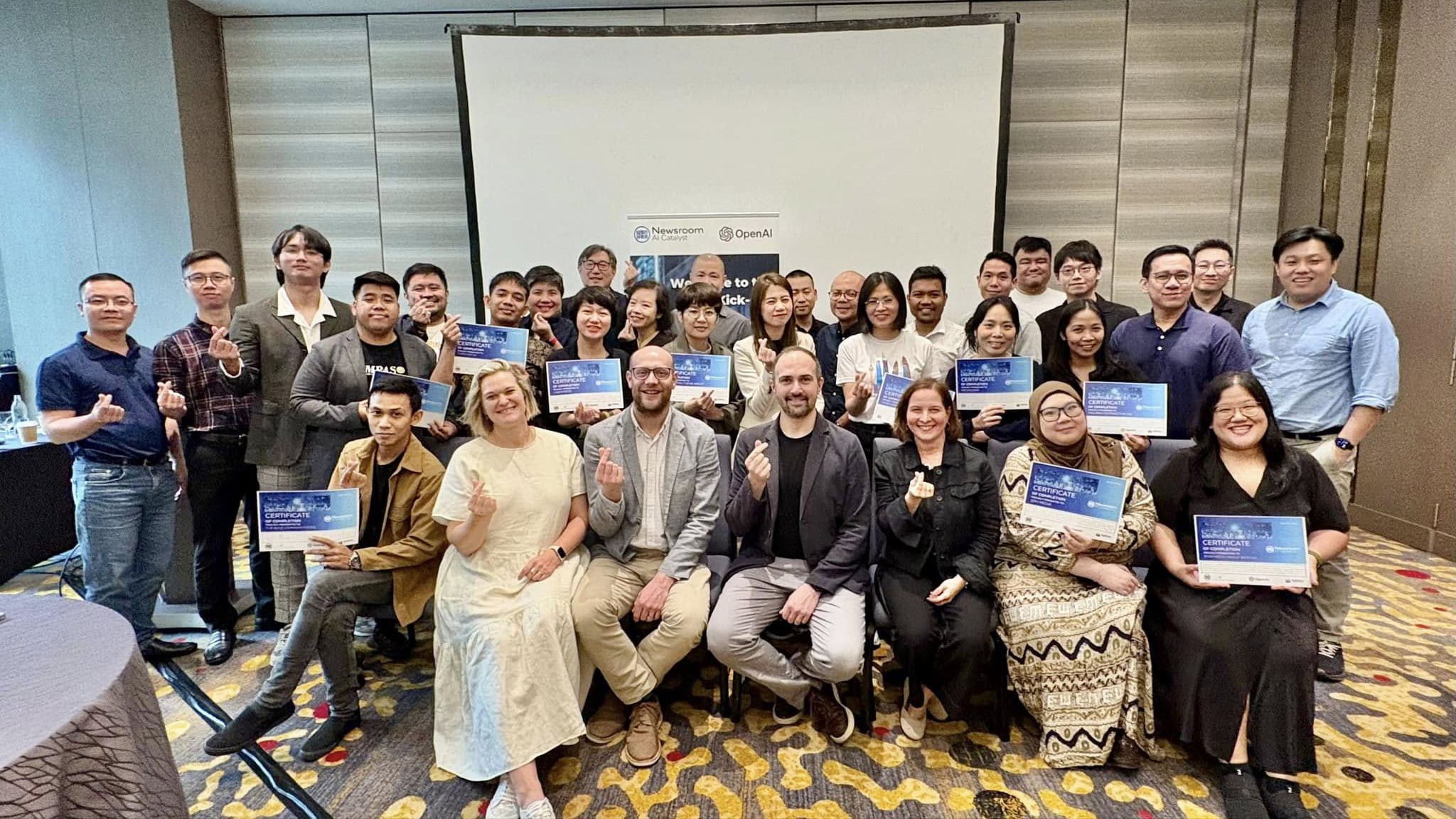
Reporters and technicians of Nhan Dan Newspaper and 15 other press agencies in the Asia-Pacific region participated in the Newsroom AI Catalyst 2024 Asia-Pacific Program of the World Association of Newspapers and Publishers (WAN-IFRA APAC Newsroom AI Catalyst 2024).
Reporter: So specifically, how has WAN-IFRA supported press agencies in this process?
Ms Jen Teo: We have been doing a lot of things. Recently, the highlight has been our data science program, where we bring together experts from around the world to guide the newsroom in leveraging data to improve content, increase engagement and increase revenue.
In addition, the AI in media initiative is expanding. We have established a working group that is open to all members and communicates via Slack. WAN-IFRA also organizes international events, such as the World Media Congress and Digital Media Asia, to provide the latest information on digital media technologies and trends. And right now, the focus is on AI - a technology that is fundamentally changing the way journalism is done.
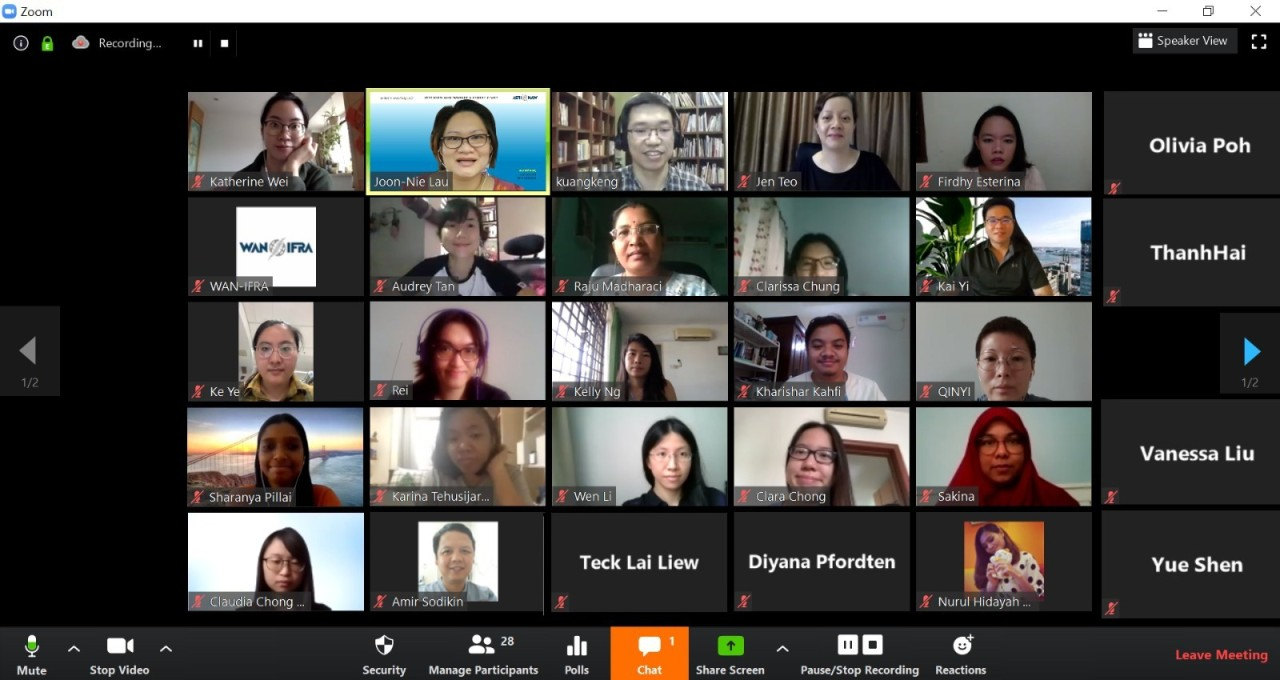
Slack platform used by WAN-IFRA for communication during the Covid-19 outbreak. (Photo: WAN-IFRA)
We also encourage and support newsrooms to create content specifically for local communities, such as student sports sections or interest groups. This helps restore the connection between journalism and people that has been lost in the age of social media.
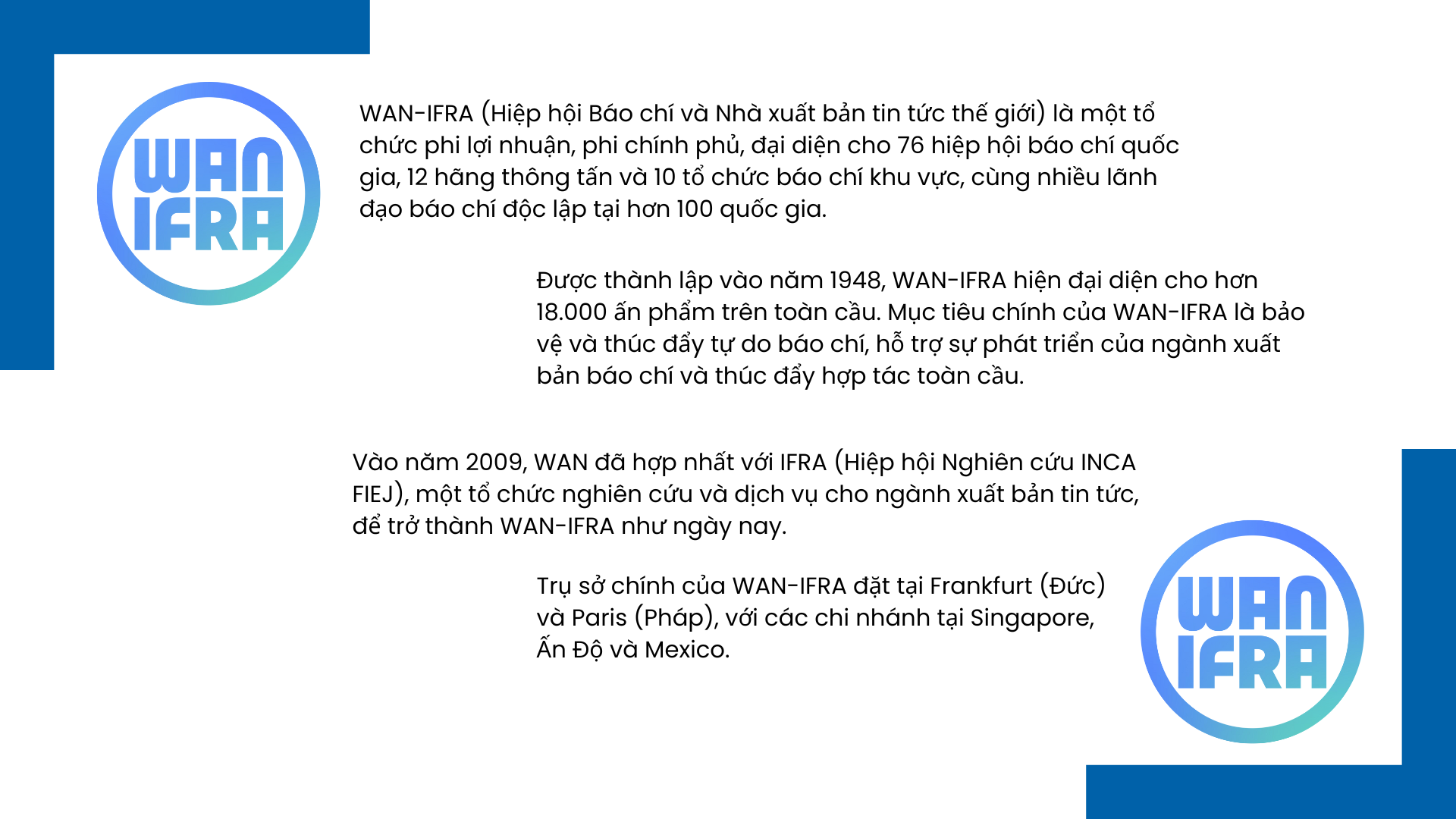
Journalism in the Age of AI: Challenges, Skills and Strategies
Reporter: With its rapid development, AI is impacting many aspects of journalism. What do you think are the biggest changes that the journalism industry is witnessing during this period?
Ms. Jen Teo: Absolutely. We are witnessing an unprecedented transformation in the journalism industry, not only in terms of technology, but also in organizational structures, operating models and even journalism culture. Artificial intelligence, with its ability to process huge amounts of data at incredible speeds, is reshaping the way newsrooms operate every day.
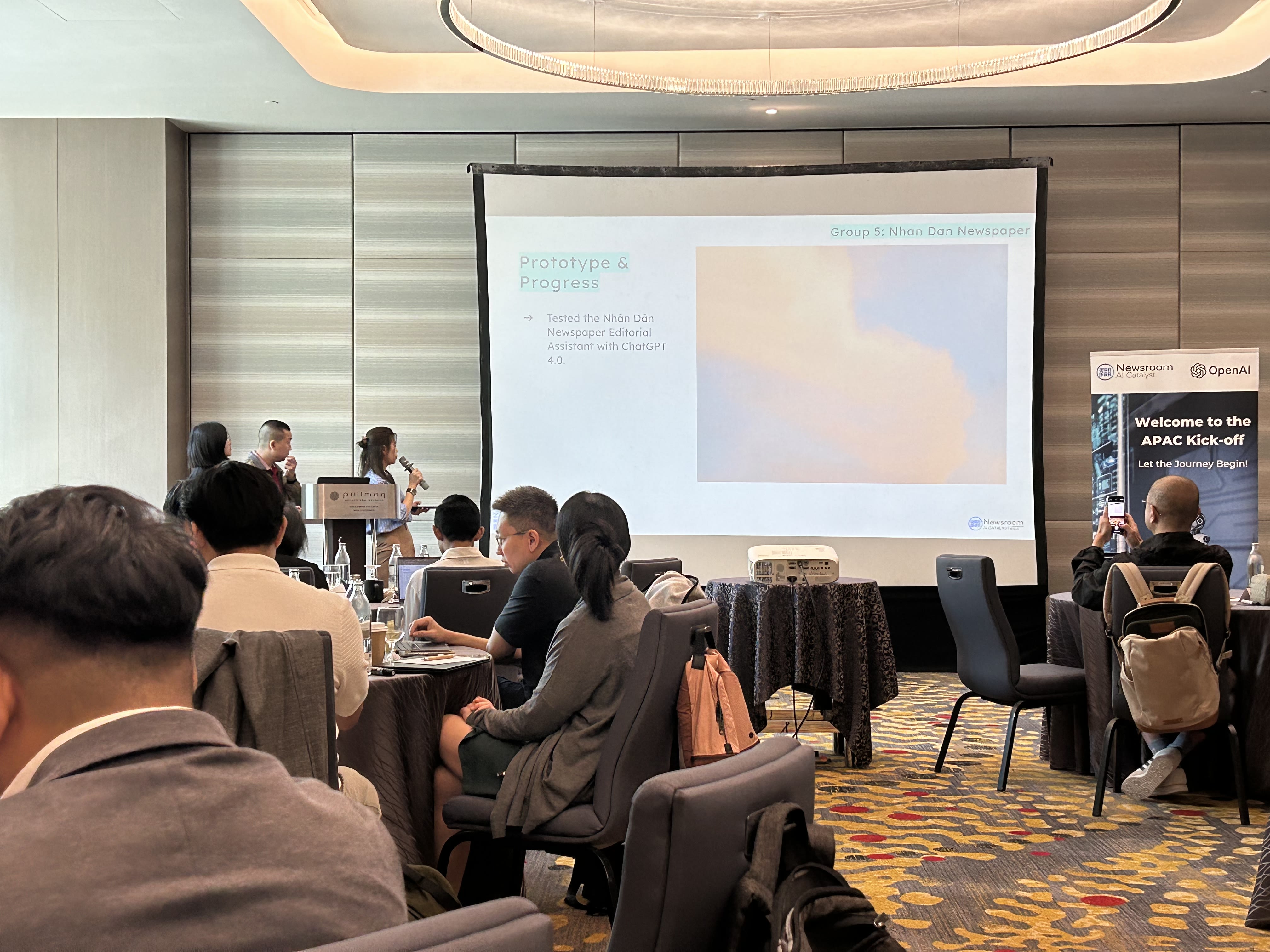
Representative of Nhan Dan Newspaper presented the project of applying ChatGPT in the news and article editing process at the Newsroom AI Catalyst 2024 Asia-Pacific Program of the World Association of Newspapers and Publishers (WAN-IFRA APAC Newsroom AI Catalyst 2024).
At WAN-IFRA, we have established a dedicated “AI in Media” team to not only monitor trends, but also proactively promote the strategic and ethical use of AI. The team organizes workshops, case studies and builds a network connecting technology experts with newsroom leaders globally. At the World Media Congress or Digital Media Asia, AI is always the most attractive topic.
However, I want to emphasize that: AI is not simply a technology. It is a cultural change. To apply AI effectively, a newsroom cannot just “order” the technology department and be done. We need a change in thinking, from senior leaders to each content production team, from technicians to product teams and even business personnel. This is the time for press agencies to redefine their core values and make wise decisions about using AI: to increase efficiency, to serve readers better but not lose their professional identity.
"AI is not just a technology. It is a cultural change. To effectively apply AI, a newsroom cannot just "order" the technology department and be done. We need a change in mindset, from senior leadership to each content production team, from technicians to product teams and even business personnel."
- Mrs. Jen Teo -
(Deputy Director of Training and Special Projects of WAN-IFRA in Singapore)
Reporter: So? Specifically, in your opinion, what skills do journalists need in the AI era?
Ms. Jen Teo: Journalists and editors not only need to be good at journalism but also need to update digital trends, understand news distribution platforms such as TikTok, Facebook, etc. as well as how to innovate the content production process.
Therefore, training digital skills and applying AI technology to the journalism process is very important.
In addition to traditional professional skills, in my opinion, modern journalists need:
- Understanding of digital platforms and social networks.
- Basic data analysis skills to understand reader behavior.
- Know how to tell creative stories in many forms – from text, podcasts to short videos.
- Be flexible about monetization models, knowing how to combine fees, sponsorships, advertising, and government support.
Most importantly, they still need to maintain professional standards, including accuracy, honesty, and the ability to spot stories. AI can suggest, but the writer still has to be the moderator and make the final decision.
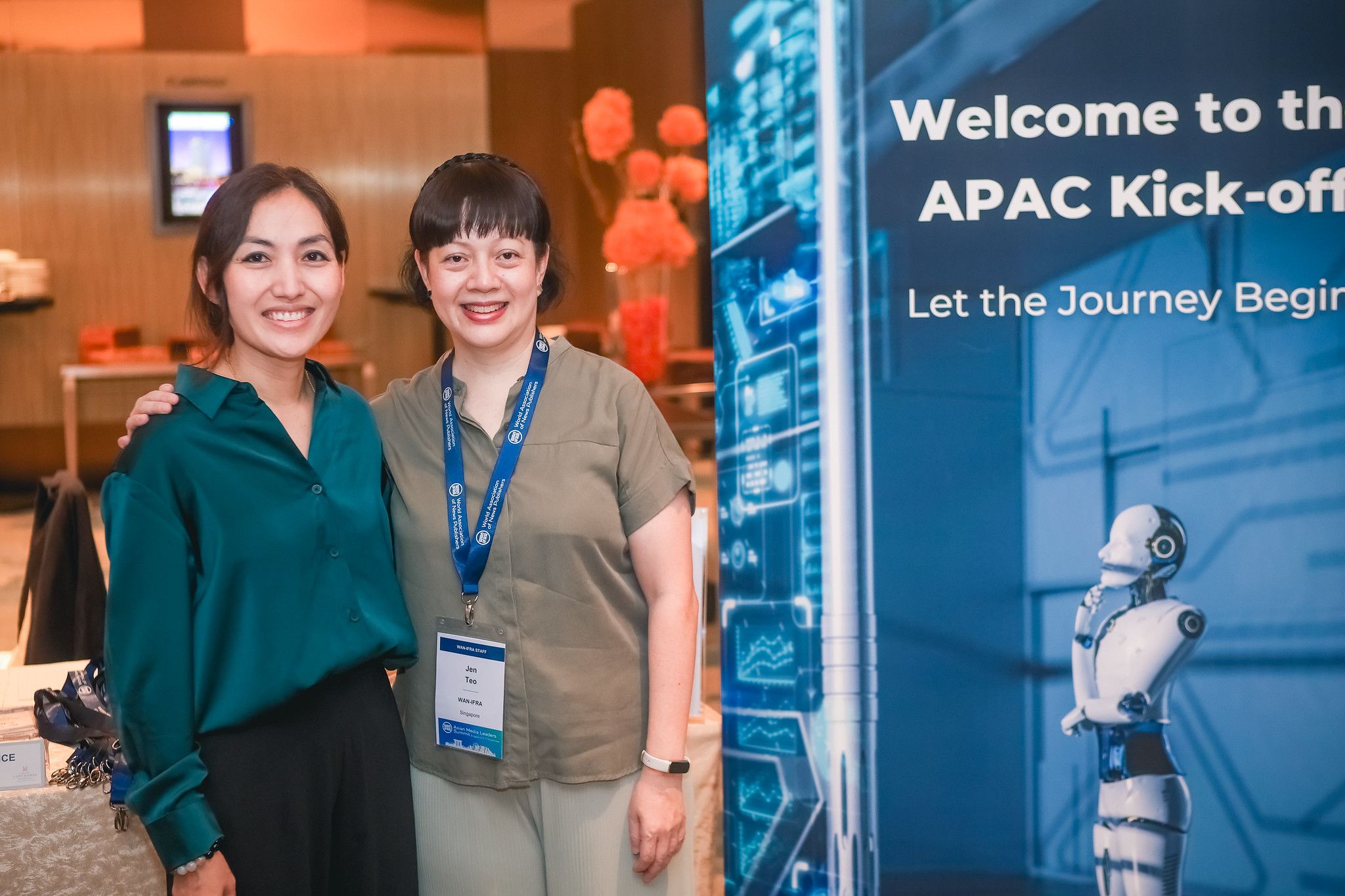
Ms. Jen Teo (right).
Reporter: But if AI becomes increasingly good at writing news, translating, synthesizing, etc., is there a risk that journalists will be replaced?
Ms. Jen Teo: The answer is definitely “no”, if we know how to put AI in its right place - a support tool, not a replacement "co-worker".
In fact, I believe AI will help good journalists become even better. Imagine having to process hundreds of pages of documents, or follow a conference that lasts for 6 hours. Previously, this was a task that took days, even weeks to process. But now, AI can help filter data, create summaries, detect highlights at a glance. From there, journalists can focus more on the high-value work: analyzing, investigating, criticizing and telling stories that really have depth.

AI can write a news story, but it cannot ask a surprising question in a press conference, cannot sense a subtle change in a character's attitude, cannot listen with human intuition and life experience. It has no emotions, cannot understand complex socio-legal contexts, and cannot grasp cultural sensitivities - which are especially important in diverse societies like Asia.
Humans are still at the center and will always be, if we don't get lazy and let AI replace us.
Vietnamese press confidently enters the global playground
Reporter: How does WAN-IFRA assess the development of Vietnamese journalism in the past 5-10 years?
Ms. Jen Teo: I am really impressed! Vietnam is emerging as one of the fastest growing countries in the media sector in Southeast Asia. In particular, newsrooms like Nhan Dan have shown leadership in digital transformation, content innovation and experimentation with new technologies like AI.
We are honored to cooperate with the Editor-in-Chief of Nhan Dan Newspaper, Mr. Le Quoc Minh, who always has a strong innovative mindset. Under his leadership, I see that Nhan Dan Newspaper has paid great attention to training its staff, improving professional standards and professionalism, and applying techniques and technologies that have also improved significantly. This process will certainly have a positive impact on the Vietnamese press in general due to the important position of Nhan Dan Newspaper.
Reporter: According to you, what is the biggest challenge facing Vietnamese journalism today?
Ms. Jen Teo: From my observations while working and interacting with many newsrooms in Vietnam, the biggest challenge today is not technology or technique but how to retain and inspire the young generation of journalists.
Vietnam has a lot of smart, sharp young people who are quick to adopt technology and have a global mindset. I have met young journalists from Vietnamese press agencies at international conferences. They are dynamic, sharp and have an amazing ability to adapt. But at the same time, there is a worrying fact: many of them leave the industry after only a few years of working in journalism. They move to fields such as corporate communications, digital marketing, or startups - where they are said to have better income.
I think this raises a question: What does the Vietnamese press need to do to retain young talent? It needs an environment where young people feel listened to, empowered and developed. In addition, newsrooms need to invest more in training not only in writing skills but also in multimedia skills, data analysis, and understanding of audiences. That is, turning the newsroom into a place of continuous learning and constant innovation.
Finally, and most importantly, it is important to help young people see that their work is meaningful. When a reporter realizes that their writing can make a difference, represent a voice that is marginalized, or inspire positive change, that is a powerful motivator. It is the responsibility of newsrooms to ignite and sustain that flame.
I believe that if the Vietnamese press can nurture a generation of young, idealistic, skilled and properly supported journalists, the future of the industry will be very promising.
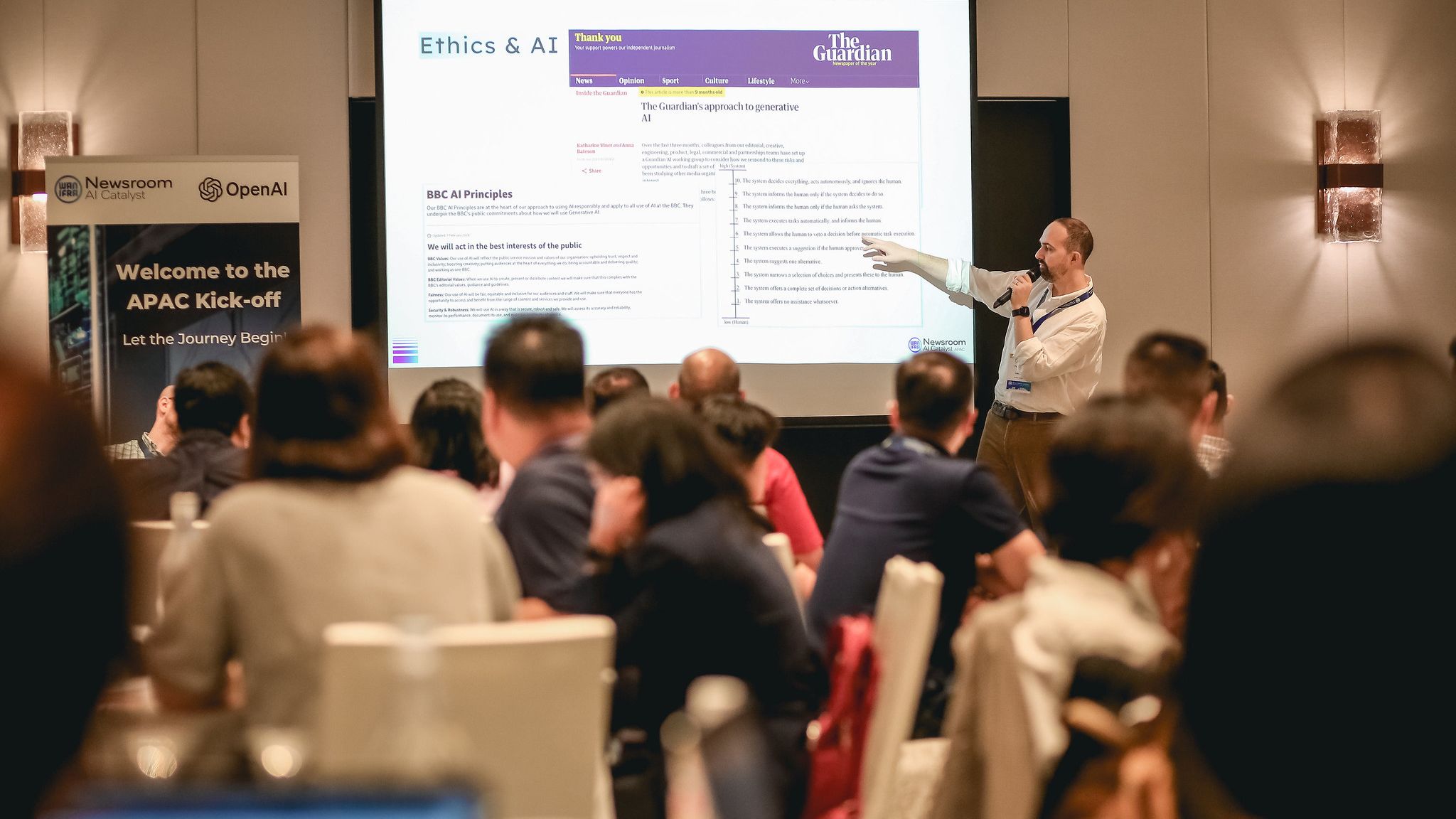
WAN-IFRA APAC Newsroom AI Catalyst 2024 Asia-Pacific Program.
Reporter: What specific plans does WAN-IFRA have to support Vietnam in the coming time?
Ms. Jen Teo: We are making great efforts to bring international training programs and seminars closer to Vietnamese journalists. However, the language barrier remains a major obstacle. We are testing AI technology to support automatic translation and hope to have more Vietnamese collaborators to support the dissemination of knowledge.
In addition, we are also discussing with Nhan Dan Newspaper about the possibility of bringing some international conferences to Vietnam, thereby helping young domestic journalists connect directly with global experts and learn new trends in the most practical way.
E-Magazine | Nhandan.vn
Implementation direction: HONG MINH
Content: HAI YEN-PLUM BLOSSOM
Presented by: VAN THANH
Source: https://nhandan.vn/special/tronglansongai_baochicanvungtaycheo/index.html



![[Photo] National Assembly Chairman Tran Thanh Man attends the VinFuture 2025 Award Ceremony](/_next/image?url=https%3A%2F%2Fvphoto.vietnam.vn%2Fthumb%2F1200x675%2Fvietnam%2Fresource%2FIMAGE%2F2025%2F12%2F05%2F1764951162416_2628509768338816493-6995-jpg.webp&w=3840&q=75)

![[Photo] 60th Anniversary of the Founding of the Vietnam Association of Photographic Artists](/_next/image?url=https%3A%2F%2Fvphoto.vietnam.vn%2Fthumb%2F1200x675%2Fvietnam%2Fresource%2FIMAGE%2F2025%2F12%2F05%2F1764935864512_a1-bnd-0841-9740-jpg.webp&w=3840&q=75)


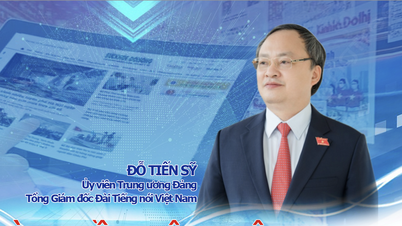



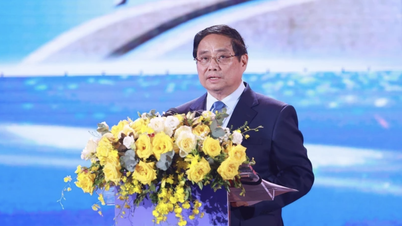

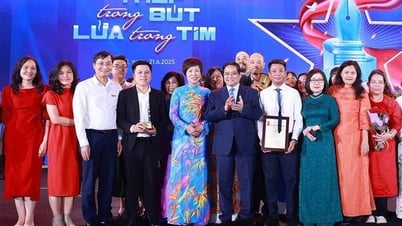

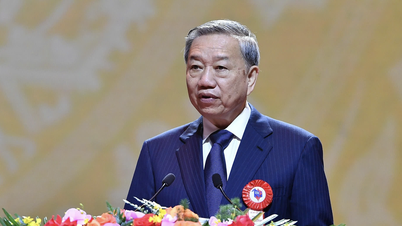














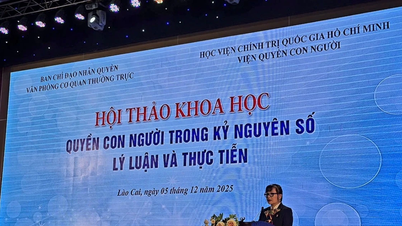



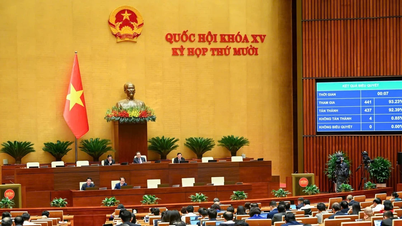







































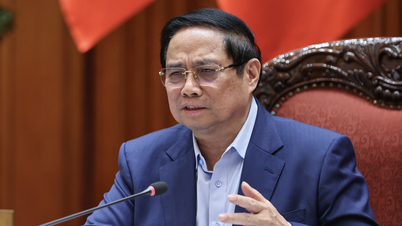








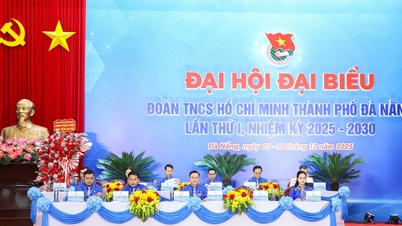


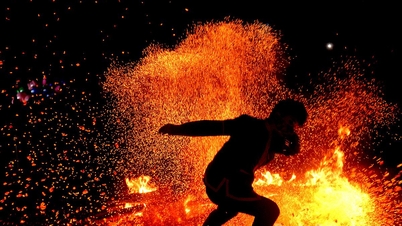

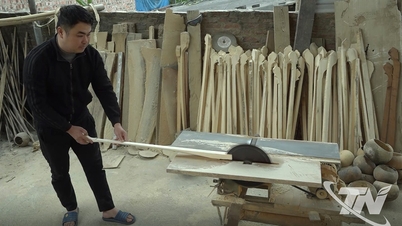


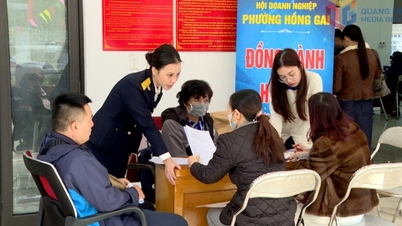











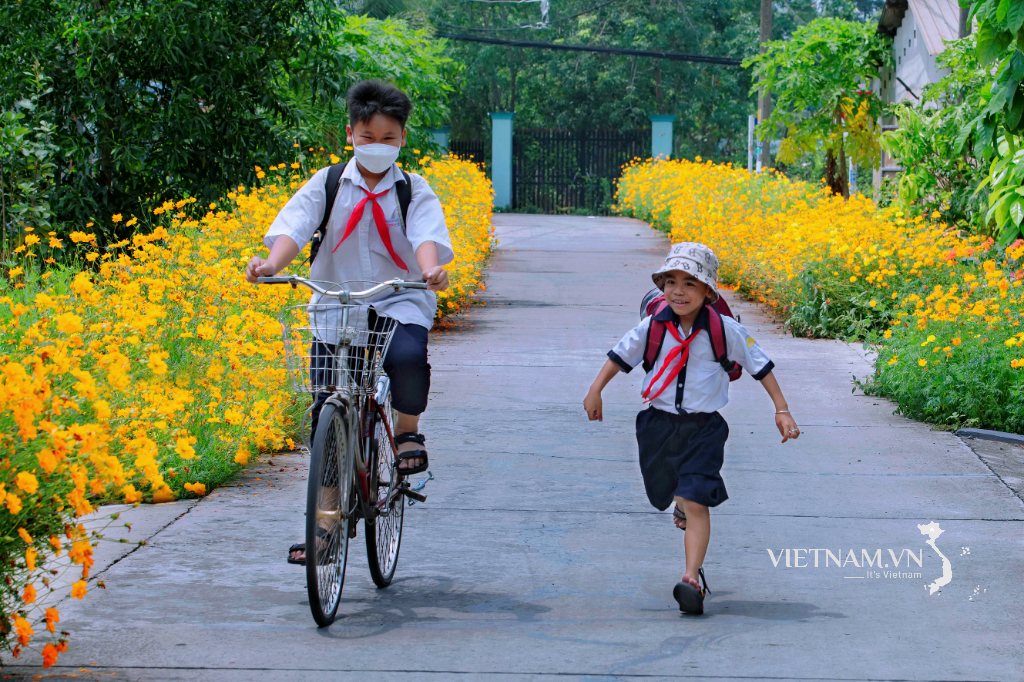






Comment (0)